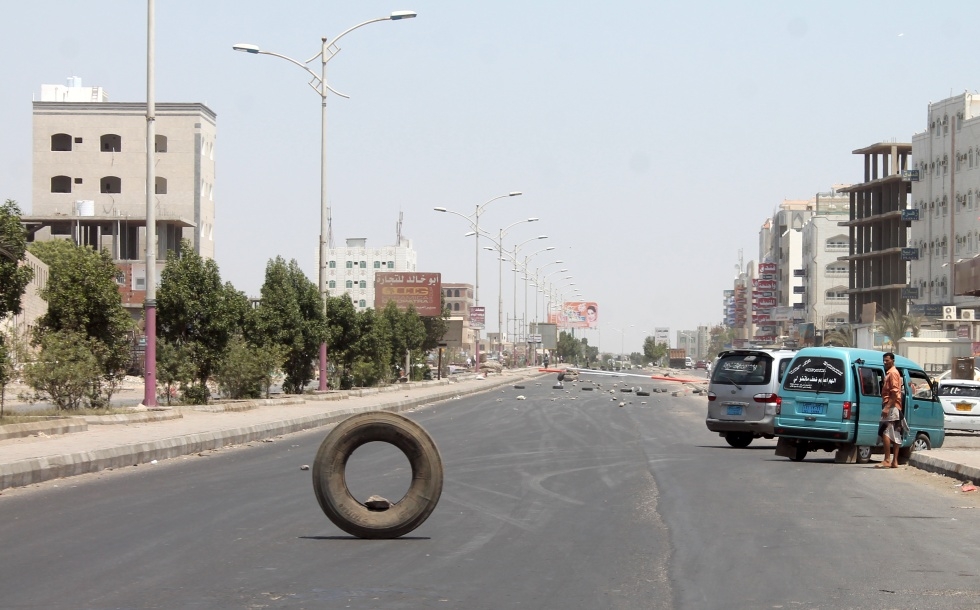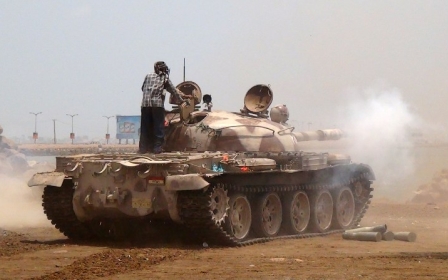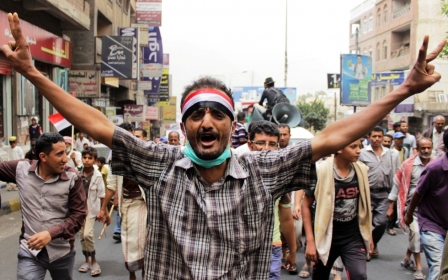The battle for Aden: no clear winner

The southern port city of Aden, one of the last remaining support bases for President Abd Rabbuh Mansour Hadi, has witnessed furious clashes in the past few days between the Houthi militia and the Yemeni troops loyal to the president.
Despite airstrikes carried out by the Saudi-led military coalition against the Houthis and their positions, they have maintained slippery control in parts of the province, as they lose what they managed to gain only to advance and take control of further areas.
Previously, the Houthis had briefly overtaken the presidential palace in Aden on Thursday before fierce fighting and aerial strikes by Saudi Arabia forced them to withdraw the following day to the district of Khor Maksar.
On Sunday, local officials reported that the Houthis had advanced into the central district of Mualla and captured the provincial government headquarters.
Fathi al-Azraq, editor of the local Aden Ghad website, said the Houthis were trying to advance in Mualla using heavy weaponry.
“They advance in an area, and then target the area with mortar shells and tank missiles,” al-Azraq told MEE. “Since they came to Aden, they haven’t been able to control the city, just parts of it.”
Residents of Mualla reported that dozens of families had fled their homes after several residential buildings were bombarded by the Houthis, resulting in several injuries and the death of at least one boy, 12-year-old Anas Nasr, who succumbed to his injuries after he was hit by shrapnel from a Houthi explosion. He was given a quick burial, attended by few people.
Yemeni army units and “popular committees” loyal to President Hadi retain a presence in Mualla, with a couple of parachute drops of weaponry by the Saudi-led coalition bolstering their forces.
Saudi General Ahmed Assiri had described these airdrops on Saturday as “logistical support of all kinds” but refused to comment on whether Saudi ground troops will operate in Aden.
Residents told local news agencies that ships from the coalition had aligned themselves to target the Houthi militia as the latter edge their way closer to the districts close to the city centre.
On Friday, Yemeni troops succeeded in pushing the Houthis and soldiers backing ex-president Ali Abdullah Saleh back from Aden’s central district of Crater, after a week of gains by the militiamen.
According to Aden’s health department director Al-Kheder Lassouar, five civilians were killed and 14 wounded in fighting on Sunday in the Mualla and Qalwa’a Aden districts.
More than 185 people have been killed in the fighting in Aden between supporters and opponents of Hadi overall, and 343 are reported to be injured, according to Azraq.
In the latest round of violence, the Houthis fired mortar rounds at a pro-Hadi television station, forcing it to go off air. The Aden TV building was “damaged but there were no casualties”, according to an official at the government-run channel.
The Houthis on Sunday still controlled pockets of Mualla, closing off the main roads that lead to areas such as the Sheikh Othman neighbourhood, a former oasis. Water supplies have been cut off to residents in Aden over the past few days, and since a missile from an unidentified source landed on the electricity plant in Bir Fadel, civilians have experienced frequent electricity outages.
Azraq said people in Mualla are “trying to live normally” but he was worried about supply shortages. “For now, we are fine, but what will it be like in another week from now? Will supplies be allowed to come in?”
He also voiced his fear that if the war continues without the Saudi airstrikes fulfilling their aim, the country will be split among different enclaves of control between al-Qaeda, the Houthis, and Hadi loyalists.
“The solution is a political one,” he said. “The political forces must gather round a table and talk this out to resolve the situation. This is the only way.”
New MEE newsletter: Jerusalem Dispatch
Sign up to get the latest insights and analysis on Israel-Palestine, alongside Turkey Unpacked and other MEE newsletters
Middle East Eye delivers independent and unrivalled coverage and analysis of the Middle East, North Africa and beyond. To learn more about republishing this content and the associated fees, please fill out this form. More about MEE can be found here.



